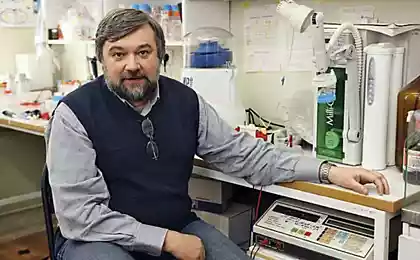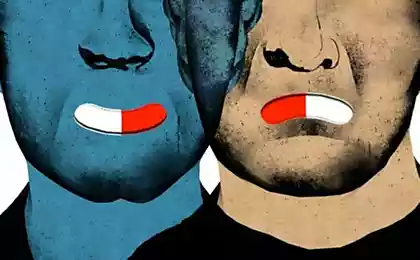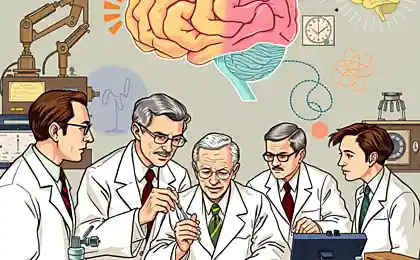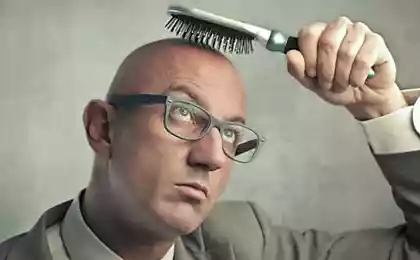383
Testing of anti-stress drugs openly remedy for baldness
Exploring the influence of anti-stress drugs on the digestive tract, scientists at the University of California in Los Angeles unexpectedly discovered remedy for baldness.
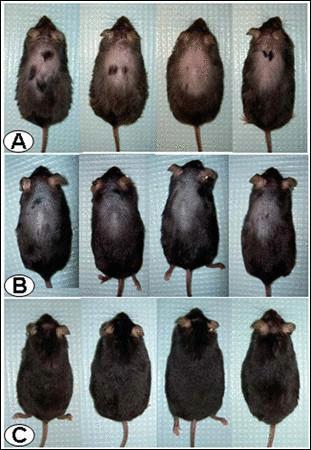
In a row And — mouse before the experiment. In a series of In — they three days after a five-day series of injections. In a row — they are the same in four weeks
In the experiments, they used genetically modified mice and mice with overproduction of the stress hormone CRF (corticotrophin-releasing factor). Such mice, as a rule, with age, begin to drastically thin out. Mice were given injections of the drug actressin-B, block the action of CRF. Three months later they decided to conduct a gastrointestinal examination of the mice... and are unable to distinguish genetically modified mice from normal mice of the control group – almost all of them, first bald, thickly overgrown with hair. Researchers were struck by not only the fact of recovery of hair, but extremely long-term effect of drug – injection was done for five days, one injection per day, and the medications affected even after four months. Given that mice do not live more than two years, by human standards, is a decade.
Subsequent experiments have confirmed the original result. When actressin-B steel to give young genetically modified mice, which is still bald, the drug prevented hair loss.
Long known that stress causes not only graying, and baldness, too. However, until now none of the miracle tools, often based on anti-stress drugs does not result in full restoration of hair and did not make such a long exposure.
So far, the drug has been tested only on mice, and whether it will work the same way on humans is still unknown. But hope is there. First, bald mice mutants tried to treat baldness "human" drug. It affected rodents as well as effect on people – with a modest result. Secondly, the stress hormone is present in human skin, so we can assume that the mechanism of alopecia in humans and mice is the same.
source: paranormal-news.ru
Source: /users/1077

In a row And — mouse before the experiment. In a series of In — they three days after a five-day series of injections. In a row — they are the same in four weeks
In the experiments, they used genetically modified mice and mice with overproduction of the stress hormone CRF (corticotrophin-releasing factor). Such mice, as a rule, with age, begin to drastically thin out. Mice were given injections of the drug actressin-B, block the action of CRF. Three months later they decided to conduct a gastrointestinal examination of the mice... and are unable to distinguish genetically modified mice from normal mice of the control group – almost all of them, first bald, thickly overgrown with hair. Researchers were struck by not only the fact of recovery of hair, but extremely long-term effect of drug – injection was done for five days, one injection per day, and the medications affected even after four months. Given that mice do not live more than two years, by human standards, is a decade.
Subsequent experiments have confirmed the original result. When actressin-B steel to give young genetically modified mice, which is still bald, the drug prevented hair loss.
Long known that stress causes not only graying, and baldness, too. However, until now none of the miracle tools, often based on anti-stress drugs does not result in full restoration of hair and did not make such a long exposure.
So far, the drug has been tested only on mice, and whether it will work the same way on humans is still unknown. But hope is there. First, bald mice mutants tried to treat baldness "human" drug. It affected rodents as well as effect on people – with a modest result. Secondly, the stress hormone is present in human skin, so we can assume that the mechanism of alopecia in humans and mice is the same.
source: paranormal-news.ru
Source: /users/1077












